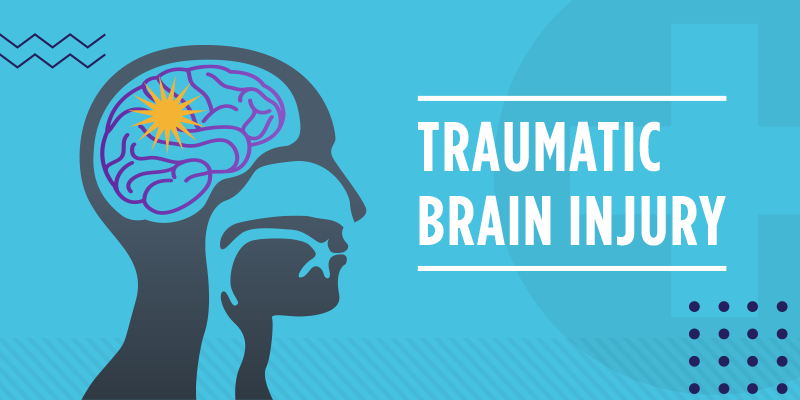What is a Traumatic Brain Injury (TBI)?
A Traumatic Brain Injury (TBI) is a term that subsumes a number of different types of injuries, usually resulting from a sudden external, physical assault to the head. They can vary in severity ranging from mild, moderate to severe, and usually result in alteration of brain function (e.g., memory loss) and evidence of brain pathology (e.g. changes in vision, balance etc.).
Causes of TBI
Research has shown that some of the most common causes of a TBI include falls, motor vehicle accidents, assaults and incidents involving firearms. Sports injury and combat related injuries are other common cause of a TBI. Although, anyone can get a TBI, statistics show that certain groups are more vulnerable than other groups. For example:
- Adults aged 65-years and older
- Racial and Ethnic minorities
- Males in any age group
- Those who survive intimate partner violence
Types of Brain Injuries
In addition to severity, brain injuries are also categorized as (a) closed head injuries, where the brain gets injured, but without a break in the skull. These injuries are often a result of a rapid forward or backward movement and shaking of the brain inside the bony skull that results in bruising and tearing of brain tissue and blood vessels (b) penetrating head injuries, where there is a break in the skull from, for example, a bullet wound. Another type of injury, Diffuse Axonal Injury, happens when there is shearing of axons, which are the brain’s long connecting nerve fibers.
Diagnosing a TBI
If a person experiences a brain injury, depending once again on the type and severity, you may see a host of clinicians. These rang from a family physician or an ER doctor who may ultimately refer you to a neurologist, neurosurgeon, neuropsychologist and/or a Physical medicine and rehabilitation (PM&R) physicians (physiatrists not to be mistaken for a psychiatrist). Besides, a clinical exam a TBI may be diagnosed using specific neurologic exam, or, specific tools such as the Glasgow Coma Scale to determine severity. Imaging techniques such as a CT scan or MRI are also frequently used to assess structural changes in the brain along with neuropsychological tests to assess functional changes in thinking and behavior.
Symptoms of a TBI
A TBI can have wide range of consequences, including changes in thinking, behavior and even personality. Some of these consequences are apparent immediately. While others may emerge over a period of time.
Usually symptoms of a TBI can be experienced in the realm of:
- Physical, (headache, nausea, vomiting, and balance and fatigue
- Sensory (blurry vision, ringing in ears, loss of smell, speech )
- Cognitive/behavioral/mood (problems with attention, memory, speech and language foggy, anger, irritability and anxious and depressed).
It is also common to develop seizures after a TBI with the incidence of seizures ranging between 2.6% to 33%. Combined, these symptoms can interfere with person’s ability to function independently, return to work or school, and, maintain social and professional relationships.
Treatment
Treatment once again depends on the severity of injury and can range from immediate emergency care and surgery to medications and various forms of inpatient and outpatient rehabilitation services that target, speech, motor difficulties, and cognition or thinking and behavior. At times, recovery from a TBI can be a slow, life altering process, however, now with increasing awareness, research and advances in the field, many resources are available to people with brain injuries and their families.
Written by Dr. Shinakee Gumber
References
- https://www.mayoclinic.org/
diseases-conditions/traumatic- brain-injury/symptoms-causes/ syc-20378557 - https://www.sciencedirect.com/
science/article/pii/ S0003999310006507 - https://www.cdc.gov/
traumaticbraininjury/get_the_ facts.html - https://www.hopkinsmedicine.
org/health/conditions-and- diseases/traumatic-brain- injury - https://stanfordhealthcare.
org/medical-conditions/brain- and-nerves/acquired-brain- injury/types.html - https://www.cognitivefxusa.
com/blog/head-injury-doctors - https://medlineplus.gov/
traumaticbraininjury.html - Foreman, B., Lee, H., Mizrahi, M. A., Hartings, J. A., Ngwenya, L. B., Privitera, M., ... & Kramer, J. H. (2022). Seizures and Cognitive Outcome After Traumatic Brain Injury: A Post Hoc Analysis. Neurocritical Care, 36(1), 130-138.





